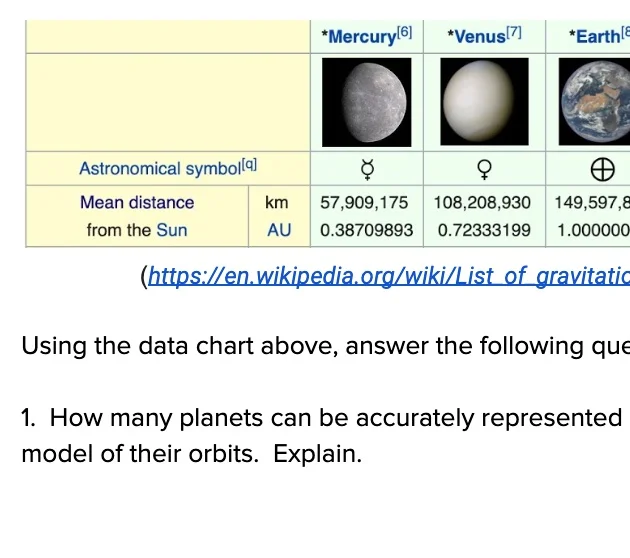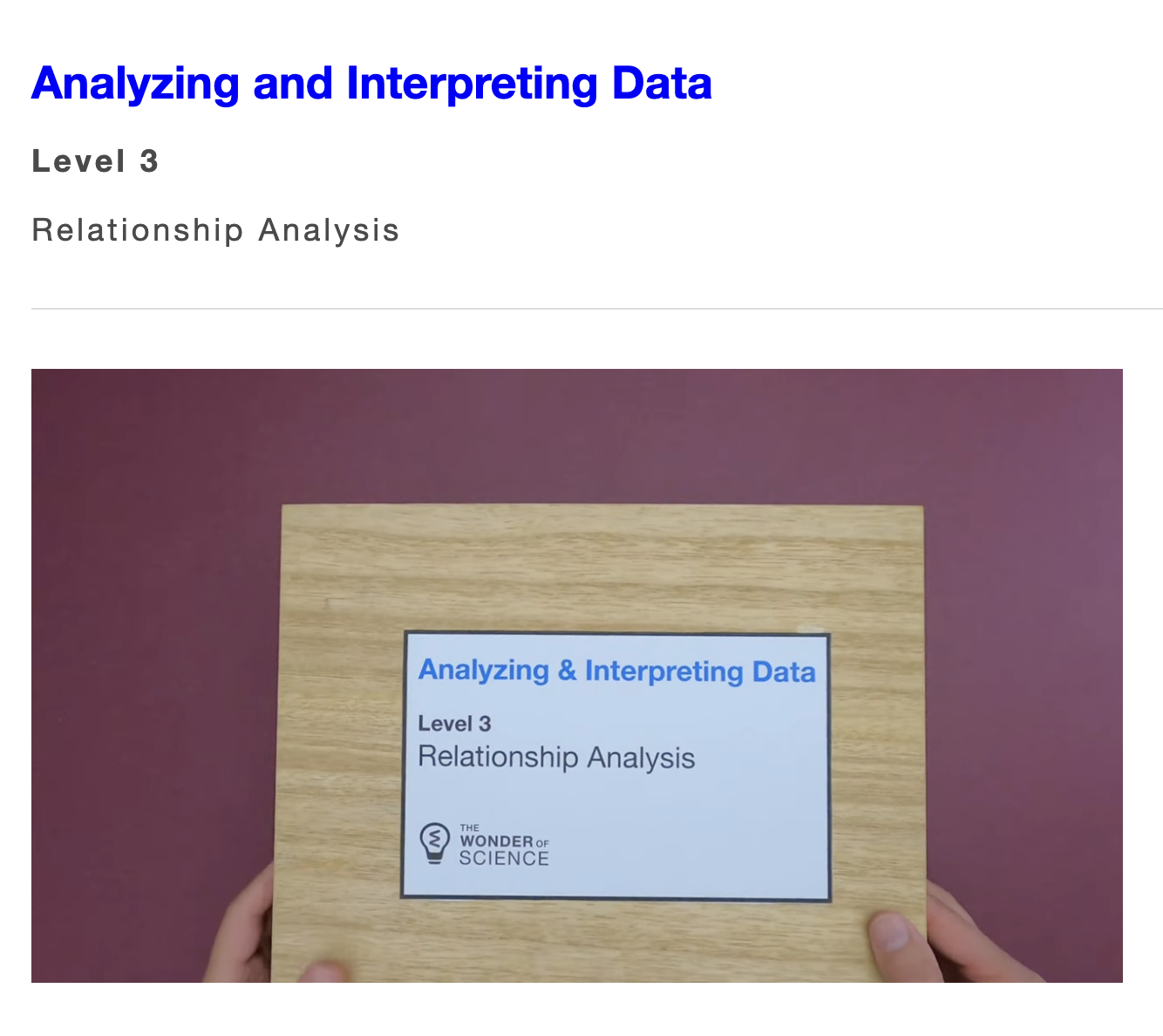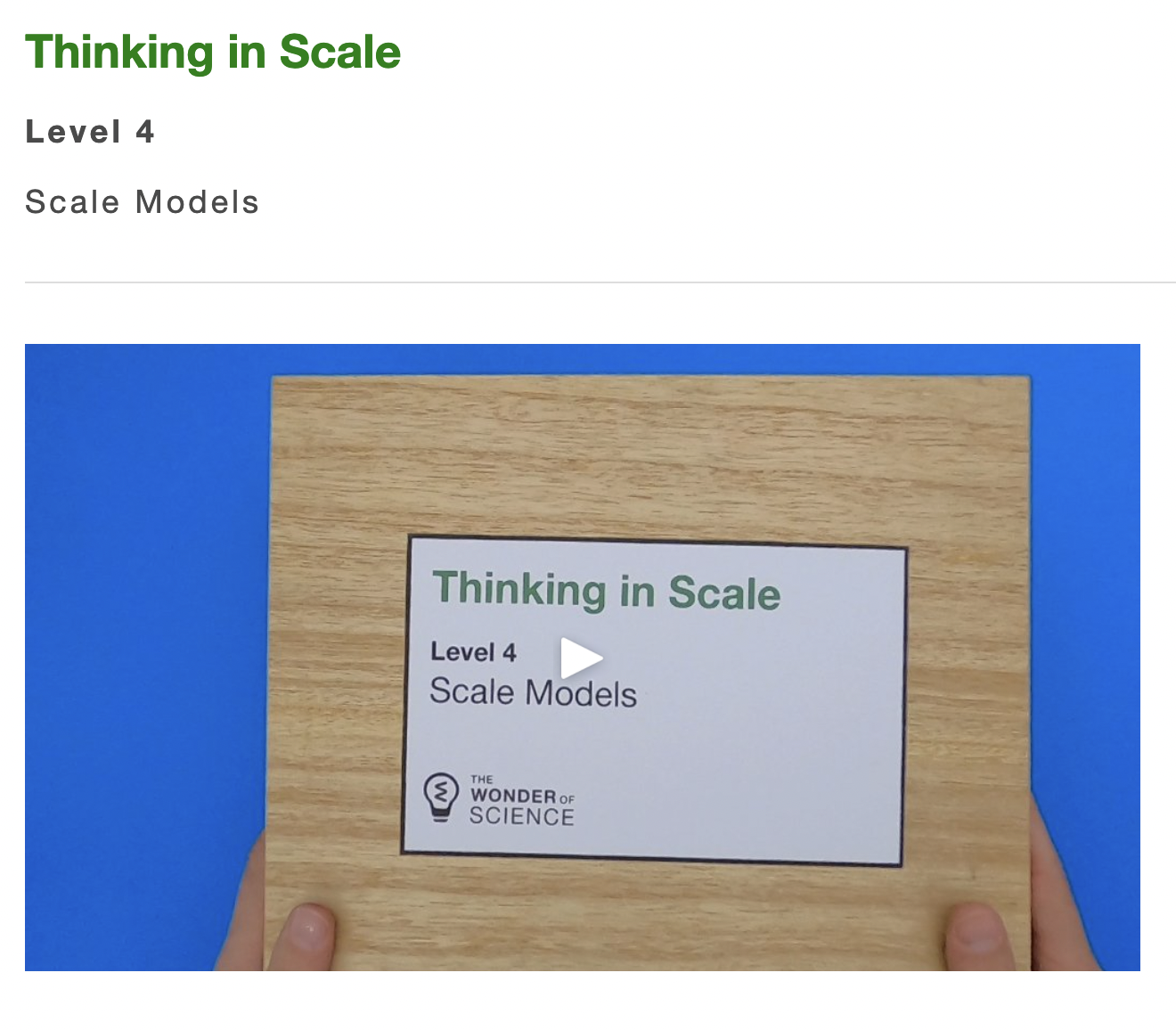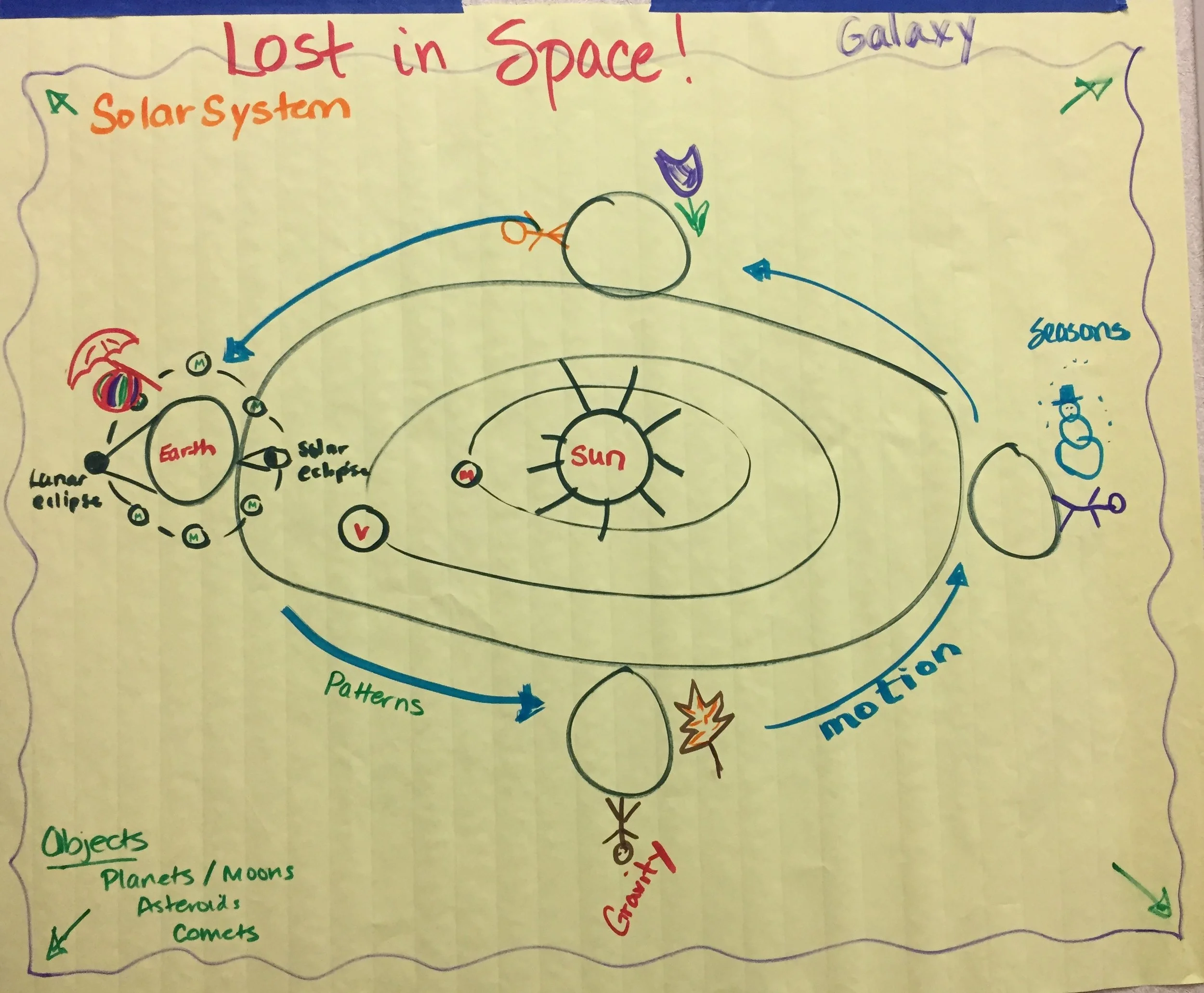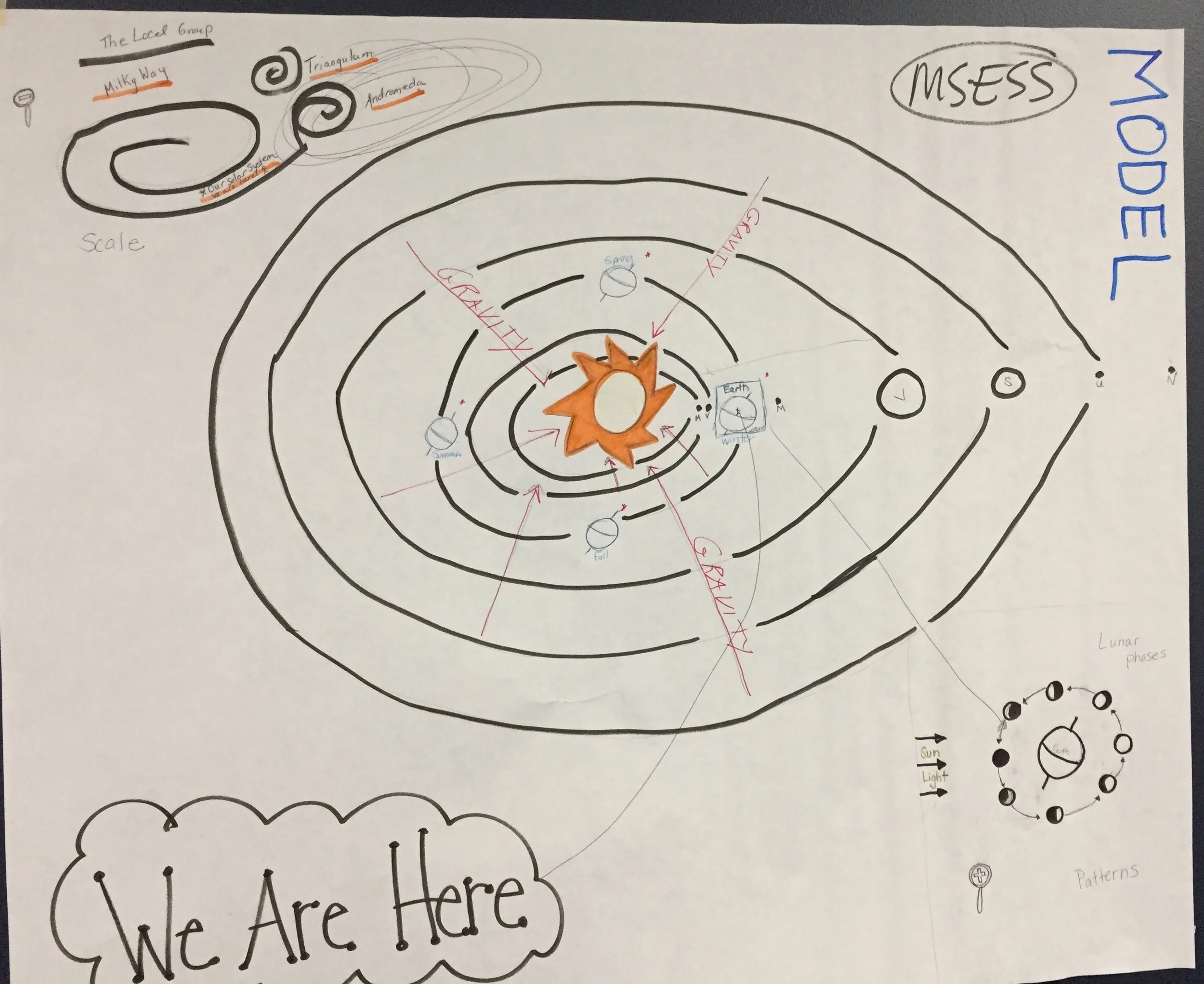MS-ESS1-3: Scale Properties in the Solar System
Analyze and interpret data to determine scale properties of objects in the solar system. (Scale, Proportion, and Quantity)
Clarification Statement: Emphasis is on the analysis of data from Earth-based instruments, space-based telescopes, and spacecraft to determine similarities and differences among solar system objects. Examples of scale properties include the sizes of an object’s layers (such as crust and atmosphere), surface features (such as volcanoes), and orbital radius. Examples of data include statistical information, drawings and photographs, and models.
Assessment Boundary: Assessment does not include recalling facts about properties of the planets and other solar system bodies.
Science Practices
Analyzing and Interpreting Data
Disciplinary Core Ideas
ESS1.B: Earth and the Solar System
Crosscutting Concepts
Scale, Proportion, and Quantity
Assessments
The Wonder of Science Assessments
Shared Assessments
The following assessments were shared by teachers implementing the NGSS. Many of these are drafts and should be used accordingly. Feel free to improve these assessments or contribute your own. Learn more here.
Instructional Resources
Mini Lessons
The Wonder of Science Resources
Anchor Charts
Phenomena
Videos
Learning Plans
Storylines
Common Core Connections
ELA/Literacy
RST.6-8.1 - Cite specific textual evidence to support analysis of science and technical texts.
RST.6-8.7 - Integrate quantitative or technical information expressed in words in a text with a version of that information expressed visually (e.g., in a flowchart, diagram, model, graph, or table).
Mathematics
6.RP.A.1 - Understand the concept of a ratio and use ratio language to describe a ratio relationship between two quantities.
7.RP.A.2 - Recognize and represent proportional relationships between quantities.
MP.2 - Reason abstractly and quantitatively.
*Next Generation Science Standards is a registered trademark of Achieve. Neither Achieve nor the lead states and partners that developed the Next Generation Science Standards were involved in the production of this product, and do not endorse it. Visit the official NGSS website.





